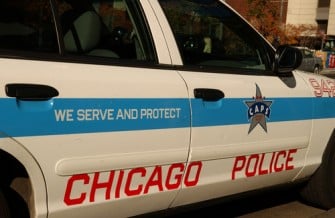City of Chicago makes videos and other evidence in police shootings available online
In what the Chicago Tribune called a watershed moment, the city of Chicago posted evidence online Friday from nearly 90 pending investigations of alleged police misconduct.
The posting is part of a new policy requiring the city to release video of police shootings within 60 days. The Tribune noted that it comes about six months after the high-profile police shooting of 17-year-old Laquan McDonald triggered citizen protests. A Chicago police officer was charged with McDonald’s murder in November, and the Justice Department announced in December that it would investigate whether the Chicago Police Department has a pattern or practice of civil rights violations.
Previously, the Tribune says, city policy was to withhold videos of alleged officer misconduct if they were part of any investigation. In legal cases, the city would ask for protective orders against release of video evidence. As recently as last year, the city turned down several Freedom of Information Act requests for video of the McDonald shooting.
The change in policy came with logistical challenges. According to the Tribune, the city notified police officers who might appear in the video, some of whom have not been accused of misconduct. The city also spoke to families of citizens who might appear on the videos. The father of one young man killed by police said it was painful to relive the shooting—he watched a video of his son’s death three times at the city’s offices—but it was important for the information to be public.
Even critics of the police have praise for the city’s move. Craig Futterman, a University of Chicago law professor who runs the school’s Civil Rights and Police Accountability Clinic, helped release the Citizens Police Data Project last fall after spending 10 years suing to obtain the information.
“We are experiencing a sea change, and lots of credit should go around for that,” Futterman said.
The Chicago chapter of the Fraternal Order of Police was less thrilled. President Dean Angelo Sr. told the Tribune via text that the union is exploring its legal options.
Chicago is now the largest city in the nation with official rules on releasing videos of excessive police force. Police reformers say it could change how other police departments handle their officer-involved shootings and community relations. Jonathan Smith, who oversaw investigations into law enforcement agencies with the Justice Department, said it could change community relations for Chicago police as well.
“I think that is going to be a huge, important step to let people see what happens, and it will begin to help build back some of that community trust,” Smith told the newspaper. “There won’t be a sense that the city is hiding anything.”
See also:
ABA Journal: “Databases create access to police misconduct cases and offer a handy tool for defense lawyers”
ABA Journal: “Release of police info draws suspicion, but it helps some defense attorneys”
ABAJournal.com: “Police data initiatives come with crime victim safety concerns”
Updated June 7 to correctly state the number of pending investigations.




